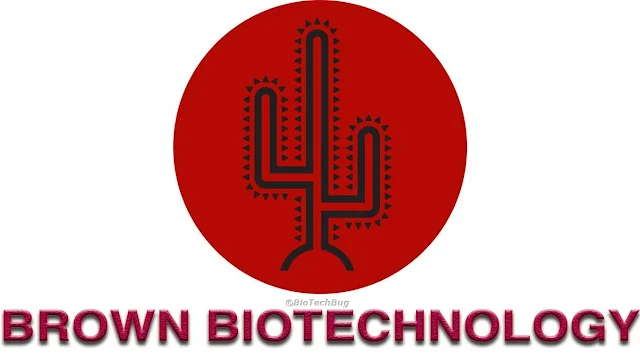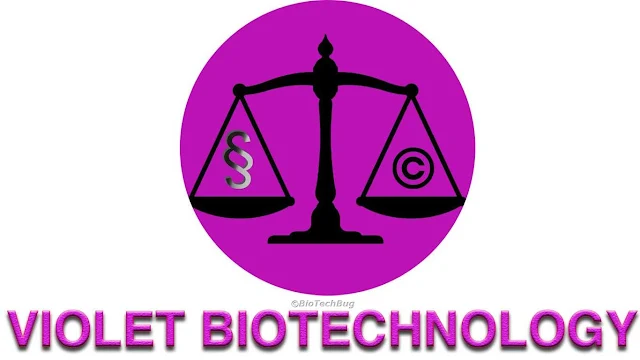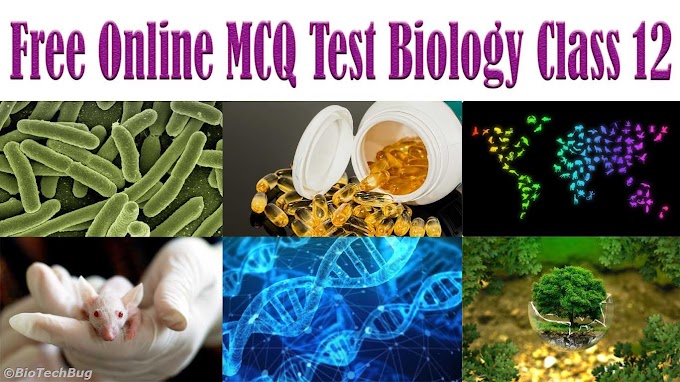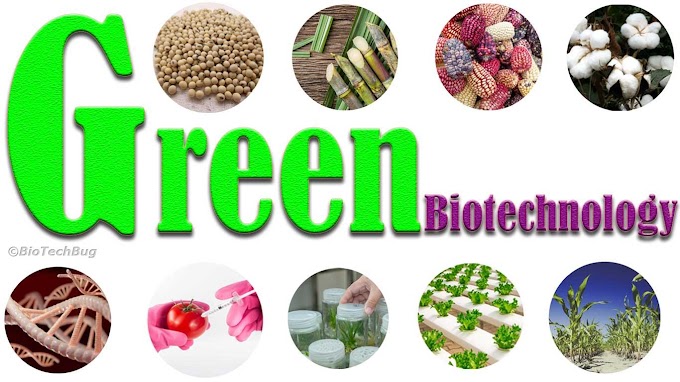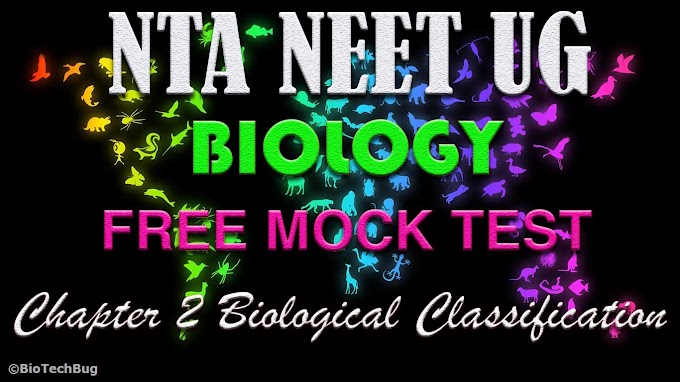 |
| Various Colors of Biotechnology |
Biotechnology has different branches that are applicable in various fields. According to applications in various fields of Biotechnology, it is classified with color codes to identify them clearly. Biotechnology scholars or students must know about the colors of Biotechnology and its fields of applications in various industries.
Biotechnology technologies are
now used today in almost every field like agriculture, medicine, environmental,
pharmaceutical, food, industrial products, and biological weapons. That makes
it multicolor in nature like a rainbow.
Biotechnology is a very colorful
branch of science that is interdisciplinary in nature. Biotechnology involves
the manipulation of living organisms and their genetic components for the
production of commercial products for human benefit.
Biotechnology applications used
in our daily life since ancient times but today due to advancements in
Biotechnological techniques and the involvement of other branches of science
subjects like physics, chemistry, mathematics, engineering, computer
application, and information technology, it is used in almost every field.
By using biochemical,
biophysical, molecular biological techniques, engineering, and, bioinformatics,
information technology, Biotechnologists are able to develop vaccines, new
drugs, diagnostics, food products, cosmetics, agriculture, and industrially
useful chemicals.
You Should Solve: Subject-Wise
MCQs on Biotechnology
Color Code Classification of Biotechnology
Due to the vast application of
Biotechnology in various fields like medical, agriculture, dairy, textile,
food, and many more industries, Biotechnology can be classified using a color
code. Paweł Kafarski, who is the Faculty of Chemistry in the Department of
Bioorganic Chemistry in 2012 classifies Biotechnology by using ten different
color codes.
On the basis of the application field, the colorful types of biotechnology are Green, Red, White, Gold, Grey, Blue, Yellow, Violet, Brown, and Dark. We listed here the colors of Biotechnology and their application areas.
|
S.No |
Color Code |
Biotechnology Branch/ Field |
|
1 |
Green |
Agriculture Biotechnology |
|
2 |
Red |
Medical Biotechnology |
|
3 |
White |
Industrial Biotechnology |
|
4 |
Gold |
Bioinformatics |
|
5 |
Grey |
Environment Protection
Biotechnology |
|
6 |
Blue |
Marine (Aquatic) Biotechnology |
|
7 |
Yellow |
Food Nutritional Biotechnology |
|
8 |
Violet |
IPR, Ethics and Biosafety |
|
9 |
Brown |
Arid & Desert Biotechnology |
|
10 |
Dark |
Bioterrorism,
Biological Weapons |
1. Green Biotechnology
Green Biotechnology includes
techniques that are directly related to the agriculture field. By using
plant Biotechnology, tissue culture, bio-pesticides, and bio-fertilizers
applications reducing the dependency on chemical or mechanical techniques. The
development of new crops by modifications in genes, micro-propagation, and
tissue culture falls under this category.
It is a major branch of
Biotechnology that is used on a large scale in agriculture and the Agri-industrial
field. Green Biotechnology covers agriculture, the environment, bioenergy, etc.
It provides solutions to the agriculture, horticulture, and domestic animal
breeding processes.
2. Red Biotechnology
Medical or Pharmaceutical
biotechnology-related fields fall under Red Biotechnology. It includes the
production of drugs, vaccines, antibiotics, medicines, and health-related
items.
It is related to the development of
new drugs, treatment techniques, biosimilars, hormones, stem cells, monoclonal
antibodies, siRNA, diagnostic techniques, gene therapy, stem cells, genetic
testing, etc.
It is the second most popular
field of Biotechnology in which large-scale research institutes, hospitals,
academic institutes, and commercial industries work together for the development
of new techniques, drugs, artificial organs, medical diagnostic kits,
regenerative therapies, vaccines, etc.
3. White Biotechnology
Industrial Biotechnology works
fall under the White Biotechnology field. Application of Biotechnological
techniques such as biocatalysts in industrial processes, production of
biodegradable polymers, production of industrially useful enzymes and
microorganisms, and production of wine, bread, or beer.
It is the fastest-growing
biotechnology field that uses microorganisms in chemical production, plastics,
textiles, biofuels, cosmetics, paper, textiles, tanning, and food products.
4. Gold Biotechnology
Gold Biotechnology which is now
known as Bioinformatics, deals with all types of computational biology
techniques that include computer science, chip technology, Nanobiotechnology,
etc. Bioinformatics is the most advanced form of Biotechnology that is used in
analyzing biological data by computer applications.
All biological data are available
from the sequencing of various genomes of different organisms used in various
areas like genomics, structural genomics, proteomics for developing new
drugs or vaccines, phylogenetic analysis, etc.
5. Grey Biotechnology
Grey Biotechnology also known as
Environmental Biotechnology that related to environmental applications and
focuses on the solutions to environmental problems. It includes bioremediation,
waste management, sewage treatments, etc. It works on maintaining the
biodiversity of flora and fauna in existing nature. It protects from overexploitation
of natural resources and reduces pollution in the environment.
It refers to the use of
Biotechnological techniques for the removal of contaminants from the environment
such as the use of microorganisms for waste management, plastic decaying, soil
treatment (bioremediation), oil spillage, and radioactive contamination.
6. Blue Biotechnology
It is also called marine
biotechnology, in which marine resources are exploited for the formation of products by using various Biotechnological techniques. Sea and Oceans are the
main fields of Blue Biotechnology. They have a large number of Biodiversity and
bioresources that can be used for human welfare.
Utilization of aquatic resources
like fishes, aquatic plants, shellfish, sponges, whale fishes, etc. for the production
of food, medicines, beverages, fabrics, plastics, and personal care products
that are used for human welfare by applying Biotechnological techniques falls under
the Blue Biotechnology. Not only sea and ocean but fresh-water rivers aquatic resource utilization also comes under this category of Biotechnology.
7. Yellow Biotechnology
Yellow Biotechnology refers to
nutritional biotechnology that is related to using Biotechnological techniques for
the development of nutrition-rich products. It includes the research and development
of food products like wine, cheese, and beer by fermentation. Under this
category control of insects and changing their gene for agricultural and
medicinal purposes is also included.
Under the yellow biotechnology
improvement of food products nourishing quality increases by fortified with
health-promoting additives. Golden Rice is one of the good examples of it.
It is achieved by using enzymatic
and microbial genetic modification processes to eliminate allergens and
unwanted components that cause its intolerance and the addition of nutrients
adding genes for its fortification with health-promoting components.
8. Brown Biotechnology
Brown biotechnology is a powerful
toolbox for solving the challenges of arid lands. Biotechnological techniques
such as versatile crops, bio-fertilization, phytoremediation, desalination, and
genetically modified plants are used in arid regions.
Management of deserts, arid
lands, and dry and saline soils for growing high-valued commercial crops in
Africa-like places falls under Brown biotechnology. Using
Biotechnological techniques like GMO technology, high-quality hybrid seeds, and disease-free, less water-consuming crops growing in Sahara desert-type areas is
very beneficial for people who live in these regions.
9. Violet Biotechnology
Intellectual property rights,
laws, ethical issues, biosafety, biosecurity, philosophic issues, and legal
issues related to Biotechnology fields fall under Violet Biotechnology. It
started in 1980 when genetically modified microorganisms (GMOs) had a first-time patent was started.
Violet or Purple Biotechnology
includes protecting and encouraging new biotechnology inventions by patenting
laws, providing detailed research and analysis on the new publications on biotechnology research, ensuring the IPRs of Biotechnology companies, scientists, and research institutes, and
solving any conflicts raised related to these.
10. Dark Biotechnology
Biotechnology has also dark sides
that are used against human welfare. All Biotechnology techniques that are used
against all living things and human welfare fall under Dark Biotechnology. Use
of Biotechnological techniques in terrorism, biological weapons, biowarfare,
and the development of toxins that are harmful to all types of living organisms
like humans, animals, and plants.
Development of any Biohazardous
things by applying Biotechnological techniques and using microorganisms
falls under the Dark Biotechnology field. Microorganisms like viruses,
bacteria, or any other biological agents are used as bio-weapons for any individual
or mass public, or for the nation.
You Should Try to Solve: Quiz on Colors of Biotechnology
Conclusion
Gene manipulation technique of
living organisms for the commercial-scale production of products makes
Biotechnology a wide range of applications in various areas of research such
as agriculture, medicine, and industrial products. Red (Medical), Green
(Agriculture), and White (Industrial) are the main colors of Biotechnology that
are used broadly for human welfare.
Important Books on Biotechnology
If you want to study in deep and understand Biotechnology's different areas and scope in detail then we can recommend some books on Biotechnology that you should study.







